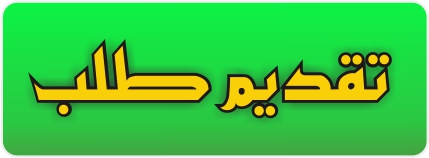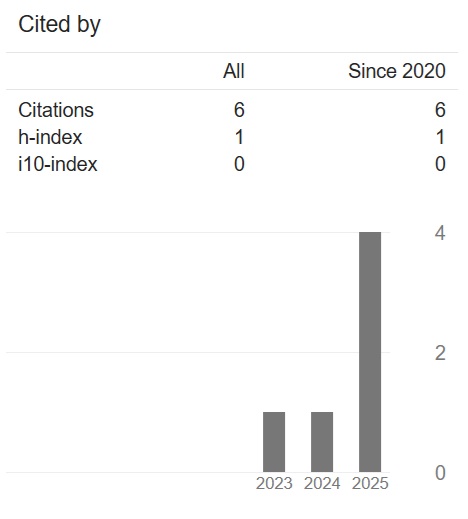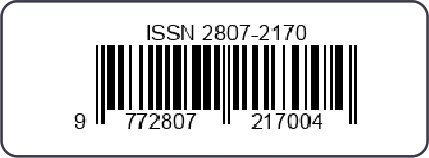PUBLICATION ETHICS
أخلاقيات/قواعد النشر
البصيرة: مجلة الدراسات الإسلامية التي تمر بعملية المراجعة وتنشر مرتين في السنة مطبوعة وعلى الإنترنت من قبل مركز البحوث وخدمة المجتمع ، المعهد العالي للدراسات الإسلامية واللغة العربية بماكسر ، إندونيسيا. يصف هذا البيان السلوك الأخلاقي لجميع الأطراف المشاركة في نشر المقالات ، كالمؤلفين والمحررين والمراجعين والناشرين. يستند هذا البيان إلى (COPE’s Best Practice Guidelines for Journal Editors.)
إرشادات أخلاقيات النشر
نشر المقالات في البصيرة: مجلة الدراسات الإسلامية هي لبنة مهمة في تطوير شبكة المعرفة المتماسكة المحترَمة. وهذا يصور جودة عمل المؤلفين والمؤسسات أو الجمعيات التي تدعمهم. المقالات التي تمت مراجعتها تحرص وتحتوي على المنهج العلمي. لذلك من المهم الاتفاق على معايير السلوك الأخلاقي المتوقعة من جميع الأطراف المشاركة في النشر، وهي: المؤلفون، ومحررو المجلات، والمراجعون، والناشرون، والمجتمع.
مركز البحوث وخدمة المجتمع، المعهد العالي للدراسات الإسلامية وللغة العربية بماكسر ، إندونيسيا بصفته ناشرًا لمجلة البصيرة: مجلة الدراسات الإسلامية مسؤولة عن الإشراف على جميع مراحل النشر بالجدية والاعتراف بالمسؤوليات الأخلاقية وغيرها. لا تلتزم المجلة فقط بضمان ألا يكون للإعلانات المعاد طبعها والعائدات التجارية الأخرى أي تأثير أو تأثير على قرارات التحرير ، بل إنها تلتزم كذلك بمساعدة التواصل مع مديري المجلات أو الناشرين الآخرين إذا كان ذلك مفيدًا ويُحتاج إليه.
قرار الاصدار
محرر البصيرة: مجلة الدراسات الإسلامية مسؤولة عن تحديد المقالات التي سيتم نشرها. يجب أن يقود التحقق من صحة العمل وأهميته للباحثين والقراء دائمًا إلى هذا القرار. يمكن أن يسترشد المحررون بسياسات هيئة تحرير المجلة وتكون مقيدة بالأحكام القانونية التي يجب إنفاذها فيما يتعلق بالتشهير وانتهاك حقوق النشر والانتحال الأدبي. يمكن للمحررين التشاور مع المحررين الآخرين أو فريق التقييم لاتخاذ هذا القرار.
لذلك ، يجب إرفاق كل مقال ببيان أصالة ينص على أن المقال صادر من إنتاج عملي الخاص وليست سرقة أدبية من مقالات الآخرين. لم يتم نشر هذه المقالة في مجلات أو وسائل إعلام أخرى وسيتم إرسالها إلى البصيرة: مجلة الدراسات الإسلامية للنسخ أو التوزيع (copyright transfer agreement).
معاملة عادلة / عدالة المعاملة
يحكم المحررون دائمًا على النصوص بناءً على محتواها الفكري بغض النظر عن العرق أو الجنس أو الميول الجنسية أو المعتقدات الدينية أو الأصل العرقي أو الجنسية أو الفلسفة السياسية للمؤلف.
سرية
لا يجوز للمحررين وموظفي التحرير الكشف عن أي معلومات حول المخطوطات المقدمة إلى أي شخص آخر غير المؤلفين والمحررين الخبراء والمراجعين والناشرين.
الإخطارات وتضارب المصالح
لا يجوز استخدام المواد غير المنشورة التي تم الكشف عنها في المخطوطات المقدمة في بحث المحرر الخاص دون موافقة كتابية صريحة من المؤلفين.
المساهمة في قرارات التحرير
يساعد تقييم المراجعين المحررين في اتخاذ القرارات التحريرية ومن خلال التواصل التحريري مع المؤلفين يمكن أن يساعد الكاتب أيضًا على تحسين كتاباتهم.
سرعة
أي مقيم مختار يشعر بأنه غير مؤهل لتقييم البحث المذكور في مخطوطة أو يعلم أن مراجعته السريعة لن تكون ممكنة ، يجب عليه إخطار المحرر وإعفاء نفسه من عملية التقييم.
سرية
يجب التعامل مع أي مخطوطات تم استلامها للتقييم كوثائق سرية. لا يجوز عرض المستند أو مناقشته مع الآخرين ما لم يأذن به المحرر
معيار الموضوعية
يجب إجراء التقييمات بموضوعية. النقد الشخصي للمؤلف غير مبرر. يجب أن يذكر المقيمون وجهات نظرهم بوضوح مع الحجج الداعمة.
اعتراف المصدر
يجب على المقيمين تحديد الإنتاجات المنشورة ذات الصلة التي لم يتم الاستشهاد بها من قبل المؤلف. يجب أن يكون أي بيان بأن ملاحظة أو اشتقاق أو حجة قد تم الإبلاغ عنها مسبقًا مصحوبًا باقتباس ذي صلة. يجب أن يطلب المقيم أيضًا من المحرر الانتباه إلى أي أوجه تشابه أو تداخل بين النص الذي يتم تقييمه والكتابات الأخرى التي تم نشرها./والآخر الذي تم نشره.
الإخطارات وتضارب المصالح
يجب الحفاظ على سرية المعلومات أو الآراء التي تم الحصول عليها من خلال عملية المراجعة ولا يجوز استخدامها لتحقيق مكاسب شخصية. لا ينبغي للمقيّمين النظر في النصوص التي يكون لديهم فيها تضارب في المصالح ناشئ عن علاقة أو علاقة تنافسية أو تعاونية أو أخرى مع أي مؤلف أو شركة أو مؤسسة التي ترتبط بها المقالة.
معايير الإبلاغ
يجب على المؤلفين تقديم تقرير دقيق عن العمل الذي تم إنشاؤه ومناقشة موضوعية لأهميته. يجب تقديم البيانات الرئيسية بدقة في المقالة. يجب أن تتضمن المقالة تفاصيل ومراجع كافية ليتمكن الآخرون بإعادة العمل. لا تقبل العبارات الاحتيالية أو غير الدقيقة عمداً هي سلوك غير أخلاقي وغير مقبول.
الأصالة والسرقة الأدبية
يجب على المقدمين التأكد من أصلية إنتاجاتهم كلها، وأنهم يقتبسون بشكل صحيح عند نقل عمل أو كلمات شخص آخر.
الإصدار المتعدد أو المتكرر أو المتزامن
لا ينشر المؤلف نفس الإنتاجات في أكثر من مجلة أو مطبوعة رئيسية. لا يقبل تقديم نفس المخطوطة إلى أكثر من مجلة في نفس الوقت.
اعتراف المصدر
يجب الاعتراف اللائق بعمل الآخرين دوماً. يجب على المؤلفين الاستشهاد بالمنشورات التي كان لها تأثير في تحديد طبيعة العمل المبلغ عنه.
تأليف الكتابة
يجب أن تقتصر السلطات على أولئك الذين قدموا مساهمة كبيرة في تصور الدراسة المبلغ عنها أو تصميمها أو تنفيذها أو تفسيرها. يجب إدراج جميع الأشخاص الذين قدموا مساهمات مهمة كمؤلفين مشاركين. إذا كان هناك أشخاص آخرون شاركوا في جوانب مهمة معينة من المشروع البحثي ، فيجب الاعتراف بهم أو إدراجهم كمساهمين. يجب أن يتأكد المؤلف المناسب من تضمين جميع المؤلفين المشاركين المناسبين في الورقة ، وأن جميع المؤلفين المشاركين قد اطلعوا على النسخة النهائية من الورقة ووافقوا عليها وتقديمها للنشر.
الإشعارات وتضارب المصالح
يجب على جميع المؤلفين الكشف في نصوصهم عن أي تضارب مالي أو موضوعي آخر قد يشتبه في تأثيره على النتائج أو تفسير نصهم. يجب الكشف عن كل الدعم المالي للمشروع.
الأخطاء الجوهرية/الأساسية في الأعمال المنشورة
إذا اكتشف المؤلف أخطاء كبيرة أو عدم دقة في عمله المنشور ، فمن واجب المؤلف/فعليه إبلاغ المحرر أو ناشر المجلة على الفور والتعاون مع المحرر لسحب الكتابة أو تصحيحها.
Publication Ethics and Malpractice Statement
AL-BASHIRAH: Journal of Islamic Studies is a peer-reviewed journal, published twice a year (May and November) by the Pusat Penelitian dan Pengabdian Masyarakat (P3M) Sekolah Tinggi Ilmu Islam dan Bahasa Arab (STIBA) Makassar, Indonesia. It is available online as open access sources as well as in print. This statement clarifies the ethical behavior of all parties involved in the act of publishing an article in this journal, including the author, the editor-in-chief, the Editorial Board, the reviewers, and the publisher. This statement is based on COPE’s Best Practice Guidelines for Journal Editors.
Ethical Guideline for Journal Publication
The publication of an article in AL-BASHIRAH: Journal of Islamic Studies, is an essential building block in the development of a coherent and respected network of knowledge. It is a direct reflection of the quality of the work of the authors and the institutions that support them. Peer-reviewed articles support and embody the scientific methods. It is therefore important to agree upon standards of expected ethical behavior for all parties involved in the act of publishing: the author, the editor, the reviewer, the publisher, and the society. As the publisher of AL-BASHIRAH: Journal of Islamic Studies, the Pusat Penelitian dan Pengabdian Masyarakat (P3M) Sekolah Tinggi Ilmu Islam dan Bahasa Arab (STIBA) Makassar, Indonesia, takes its duties of guardianship over all stages of publishing seriously and it recognizes its ethical and other responsibilities. The Pusat Penelitian dan Pengabdian Masyarakat (P3M) Sekolah Tinggi Ilmu Islam dan Bahasa Arab (STIBA) Makassar, Indonesia, committed to ensuring that advertising, reprint or other commercial revenue has no impact or influence on editorial decisions.
Publication Decisions
The editors of AL-BASHIRAH: Journal of Islamic Studies is responsible for deciding which articles submitted to the journal should be published. The validation of the work in question and its importance to researchers and readers must always drive such decisions. The editors may be guided by the policies of the journal's editorial board and constrained by such legal requirements as shall then be in force regarding libel, copyright infringement, and plagiarism. The editors may confer with other editors or reviewers in making their decisions.
Plagiarism Screening
It is basically the author’s duty to only submit a manuscript that is free from plagiarism and academic malpractices. The editor, however, will check all submitted papers through Turnitin.
Fair Play
An editor at any time evaluates manuscripts for their intellectual content without regard to race, gender, sexual orientation, religious belief, ethnic origin, citizenship, or political philosophy of the authors.
Confidentiality
The editors and any editorial staff must not disclose any information about a submitted manuscript to anyone other than the corresponding author, reviewers, potential reviewers, other editorial advisers, and the publisher, as appropriate.
Disclosure and Conflicts of Interest
Unpublished materials disclosed in a submitted manuscript must not be used in editors' own research without the express written consent of the author.
___________________________________________________________________________________________________
Duties of Reviewers
Contribution to Editorial Decisions
Peer review assists the editors in making editorial decisions and through the editorial communications with the authors may also assist the author in improving the quality of the paper.
Promptness
Any selected referee who feels unqualified to review the research reported in a manuscript or knows that its prompt review will be impossible should notify the editors and excuse himself from the review process.
Confidentiality
Any manuscripts received for review must be treated as confidential documents. They must not be shown to or discussed with others except as authorized by the editor.
Standards of Objectivity
Reviews should be conducted objectively. Personal criticism of the author is inappropriate. Referees should express their views clearly with supporting arguments.
Acknowledgment of Sources
Reviewers should identify relevant published work that has not been cited by the authors. Any statement that an observation, derivation, or argument had been previously reported should be accompanied by a proper citation. A reviewer should also call to the editors' attention any substantial similarity or overlap between the manuscript under consideration and any other published paper of which they have personal knowledge.
Disclosure and Conflict of Interest
Privileged information or ideas obtained through peer review must be kept confidential and not used for personal advantage. Reviewers should not consider manuscripts in which they have conflicts of interest resulting from competitive, collaborative, or other relationships with any of the authors, companies, or institutions related to the papers.
Duties of Authors
Reporting Standards
Authors of reports of original research should present an accurate account of the work performed as well as an objective discussion of its significance. Underlying data should be represented accurately in the paper. A paper should contain sufficient detail and references to permit others to replicate the work. Fraudulent or knowingly inaccurate statements constitute unethical behavior and are unacceptable.
Originality and Plagiarism
The authors should ensure that they have written entirely original works, and if the authors have used the work and/or words of others that this has been appropriately cited or quoted.
Multiple, Redundant, or Concurrent Publication
An author should not, in general, publish manuscripts describing essentially the same research in more than one journal or primary publication. Submitting the same manuscript to more than one journal concurrently constitutes unethical publishing behavior and is unacceptable.
Acknowledgment of Sources
Proper acknowledgment of the work of others must always be given. Authors should cite publications that have been influential in determining the nature of the reported work.
Authorship of the Paper
Authorship should be limited to those who have made a significant contribution to the conception, design, execution, or interpretation of the reported research. All those who have made significant contributions should be listed as co-authors. Where there are others who have participated in certain substantive aspects of the research project, they should be acknowledged or listed as contributors. The corresponding author should ensure that all appropriate co-authors and no inappropriate co-authors are included on the paper and that all co-authors have seen and approved the final version of the paper and have agreed to its submission for publication.
Disclosure and Conflicts of Interest
All authors should disclose in their manuscript any financial or another substantive conflict of interest that might be construed to influence the results or interpretation of their manuscript. All sources of financial support for the project should be disclosed.
Fundamental errors in Published Works
When an author discovers a significant error or inaccuracy in his/her own published work, it is the author’s obligation to promptly notify the journal editor or publisher and cooperate with the editor to retract or correct the paper.
ETIKA PUBLIKASI
AL-BASHIRAH: Journal of Islamic Studies adalah jurnal bermitra bestari yang diterbitkan dua kali setahun dalam bentuk cetak dan online oleh Pusat Penelitian dan Pengabdian Masyarakat (P3M), Sekolah Tinggi Ilmu Islam dan Bahasa Arab (STIBA) Makassar, Indonesia. Pernyataan ini menjelaskan perilaku etis seluruh pihak yang terlibat dalam penerbitan artikel, termasuk penulis, dewan penyunting, mitra bebestari, dan penerbit. Pernyataan ini didasarkan pada COPE’s Best Practice Guidelines for Journal Editors.
Pedoman Etik Penerbitan
Penerbitan artikel dalam AL-BASHIRAH: Journal of Islamic Studies merupakan sebuah blok bangunan penting dalam perkembangan suatu jejaring pengetahuan yang koheren dan dihormati. Hal ini merupakan cerminan langsung dari kualitas kerja para penulis dan lembaga-lembaga yang mendukung mereka. Artikel-artikel yang direview mendukung dan mengandung metode ilmiah. Karena itu, penting untuk menyetujui standar-standar perilaku etis yang diharapkan untuk seluruh pihak yang terlibat dalam penerbitan, yaitu: penulis, penyunting jurnal, mitra bebestari, penerbit, dan masyarakat.
Pusat Penelitian dan Pengabdian Masyarakat (P3M), Sekolah Tinggi Ilmu Islam dan Bahasa Arab (STIBA) Makassar, Indonesia sebagai penerbit AL-BASHIRAH: Journal of Islamic Studies bertanggungjawab mengawal seluruh tahap penerbitan secara sungguh-sungguh dan mengakui tanggungjawab etik dan tanggungjawab lainnya. Lembaga selain berkomitmen untuk memastikan bahwa iklan cetak ulang dan pendapatan komersial lainnya tidak memiliki dampak atau pengaruh terhadap keputusan editorial, juga berkomitmen untuk membantu komunikasi dengan pengelola jurnal dan/atau penerbit yang lain jika dipandang berguna dan diperlukan.
Keputusan Penerbitan
Penyunting AL-BASHIRAH: Journal of Islamic Studies bertanggung jawab memutuskan artikel yang diterbitkan. Validasi karya tersebut dan arti pentignya bagi peneliti dan pembaca harus selalu mendorong keputusan tersebut. Para penyunting dapat dipandu oleh kebijakan dewan penyunting jurnal dan dibatasi oleh ketentuan hukum sebagaimana yang harus ditegakkan menyangkut pencemaran nama baik, pelanggaran hak cipta, dan penjiplakan (plagiarism). Penyunting dapat berunding dengan penyunting yang lain atau tim penilai dalam membuat keputusan ini.
Oleh karena itu, setiap artikel dilengkapi Surat Pernyataan Orisinilalitas yang memuat pernyataan bahwa tulisan benar-benar hasil karya saya sendiri dan bukan merupakan plagiat dari artikel orang lain. Artikel ini belum pernah dipublikasikan pada jurnal atau media yang lain dan akan diserahkan kepada AL-BASHIRAH: Journal of Islamic Studies untuk digandakan, diperbanyak dan/atau disebarluaskan (copyright transfer agreement).
Perlakuan yang Adil
Penyunting selalu menilai naskah berdasarkan kandungan intelektualnya tanpa membedakan ras, gender, orientasi seksual, keyakinan agama, asal usul etnik, kewarganegaraan atau filsafat politik para penulis.
Kerahasiaan
Para penyunting dan staf penyunting tidak boleh mengungkapkan informasi apapun mengenai naskah yang diserahkan kepada orang lain selain penulis, penyunting ahli, mitra bestari, dan penerbit.
Pemberitahuan dan Konflik Kepentingan
Bahan-bahan yang tidak diterbitkan yang diungkap dalam naskah yang diserahkan tidak boleh digunakan dalam riset penyunting sendiri tanpa persetujuan tertulis yang jelas dari penulis.
Kontribusi kepada Keputusan Editorial
Penilaian Mitra Bebestari membantu penyunting dalam membuat keputusan editorial dan melalui komunikasi editorial dengan penulis bisa juga membantu penulis menyempurnakan tulisannya.
Kecepatan
Setiap penilai yang dipilih yang merasa tidak memenuhi kualifikasi untuk menilai penelitian yang dilaporkan dalam suatu naskah atau mengetahui bahwa ulasan cepatnya akan tidak mungkin harus memberitahu kepada penyunting dan membebaskan dirinya dari proses penilaian.
Kerahasiaan
Setiap naskah yang diterima untuk dinilai harus diperlakukan sebagai dokumen rahasia. Dokumen itu tidak boleh ditunjukkan atau dibahas dengan orang lain kecuali diberi wewenang oleh penyunting.
Standar Objektivitas
Penilaian harus dilakukan secara objektif. Kritik bersifat pribadi terhadap penulis tidak dibenarkan. Penilai harus menyatakan pandangan mereka secara jelas dengan argumen yang mendukung.
Pengakuan Sumber
Penilai harus mengidentifikasi karya yang diterbitkan yang relevan yang tidak dikutip oleh penulis. Setiap pernyataan bahwa suatu observasi, derivasi, atau argumen telah dilaporkan sebelumnya harus disertai dengan kutipan yang relevan. Seorang penilai juga harus meminta penyunting untuk memperhatikan kemiripan atau tumpang tindih antara naskah yang dinilai dan tulisan lainnya yang telah diterbitkan.
Pemberitahuan dan Konflik Kepentingan
Informasi atau pendapat rahasia yang diperoleh melalui penilaian mitra bestari harus disimpan rahasia dan tidak boleh digunakan untuk kepentingan pribadi. Para penilai tidak boleh menimbang naskah di mana mereka memiliki konflik kepentingan yang berasal dari hubungan atau koneksi yang bersifat persaingan, kerja sama, atau lainnya dengan penulis manapun, perusahaan, atau lembaga yang terkait dengan tulisan.
Standar Pelaporan
Penulis harus menyajikan laporan yang akurat dari karya yang dibuat dan pembahasan yang objektif tentang signifikansinya. Data pokok harus direpresentasikan secara akurat dalam tulisan. Sebuah tulisan harus mencakup detail dan referensi yang cukup untuk memungkinkan orang lain mengulangi karya itu. Pernyataan-pernyataan curang atau yang dengan sengaja tidak akurat merupakan perilaku yang tidak etis dan tidak dapat diterima.
Orisinalitas dan Penjiplakan
Para penulis harus memastikan bahwa mereka telah menulis karya-karya yang seluruhnya asli, dan bahwa mereka telah mengutip dengan benar jika menggunakan karya dan/atau kata-kata orang lain.
Penerbitan Ganda, Pengulangan atau Berbarengan
Seorang penulis secara umum tidak boleh menerbitkan naskah yang secara esensial menjelaskan penelitian yang sama dalam lebih dari satu jurnal atau penerbitan utama. Menyerahkan naskah yang sama kepada lebih dari satu jurnal secara bersamaan merupakan perilaku tidak etis dan tidak dapat diterima.
Pengakuan Sumber
Pengakuan wajar terhadap karya orang lain harus selalu diberikan. Para penulis harus mengutip publikasi yang berpengaruh dalam menentukan sifat dari karya yang dilaporkan.
Kepengarangan Tulisan
Kepengarangan harus dibatasi kepada mereka yang memberikan sumbangan penting kepada konsepsi, desain, eksekusi atau penafsiran kajian yang dilaporkan. Seluruh orang yang memberikan sumbangan penting harus dicantumkan sebagai penulis bersama (co-authors). Jika terdapat orang lain yang ikut serta dalam aspek-aspek penting tertentu dari projek penelitian, mereka harus diakui atau dicantumkan sebagai penyumbang (contributors). Penulis yang tepat harus memastikan bahwa seluruh penulis bersama yang tepat dimasukkan dalam tulisan, dan bahwa seluruh penulis bersama telah melihat dan menyetujui versi akhir dari tulisan dan telah menyepakati penyerahannya untuk penerbitan.
Pemberitahuan dan Konflik Kepentingan
Seluruh penulis harus memberitahukan dalam naskah mereka setiap konflik keuangan atau konflik substantif lainnya yang mungkin diduga mempengaruhi hasil atau penafsiran naskah mereka. Seluruh dukungan keuangan untuk projek harus diberitahukan.
Kesalahan mendasar dalam karya-karya yang diterbitkan
Jika seorang penulis menemukan kesalahan atau ketidakakuratan yang berarti dalam karya publikasinya, menjadi kewajiban penulis untuk segera memberitahu editor atau penerbit jurnal dan bekerja sama dengan penyunting untuk menarik kembali atau membetulkan tulisan.


.jpg)









